White Rock Elementary 24-25
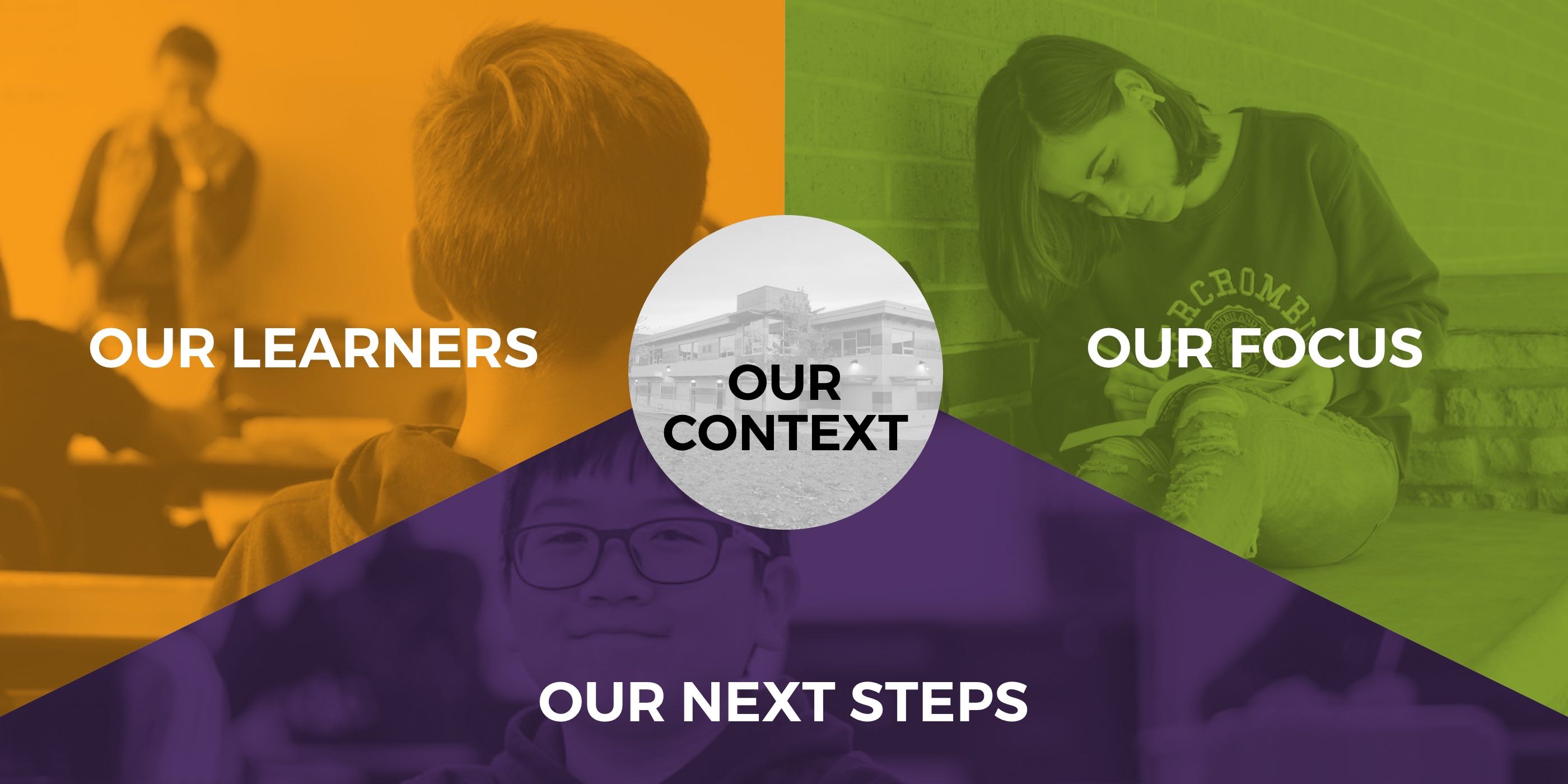

OUR LEARNERS
At White Rock Elementary, we recognize the important interconnectedness between academic success and social-emotional well-being. We know that for students to be calm and ready to learn, they must have a solid foundation in Social-Emotional Learning. For that reason, Social-Emotional Learning will continue to be at the heart of the work we do with our learners and within our school community.
Literacy has been a focus for our school since 2023-2024. As defined by the Ministry of Education, literacy encompasses the multifaceted ability to comprehend, critically evaluate, and generate various modes of communication, including oral, written, visual, digital, and multimedia formats, to achieve one's goals. With these skills, learners are able to apply essential reading, writing, speaking, and listening proficiencies across different subject domains. Literacy skills serve as the foundation of lifelong learning, empowering learners to continuously engage with information, think critically, and express themselves effectively in various contexts, thereby fostering ongoing personal and intellectual growth.
Examples of our learners engaged in literacy activities are highlighted below:
Our learners can use developmentally appropriate reading, listening and viewing strategies to make meaning
Good readers use explicitly taught reading strategies, such as visualization to build pictures in their mind of what they are reading. This helps learners have a deeper understanding of the text and have better recall.
Our learners can engage actively as listeners, viewers, and readers
Noisy reading
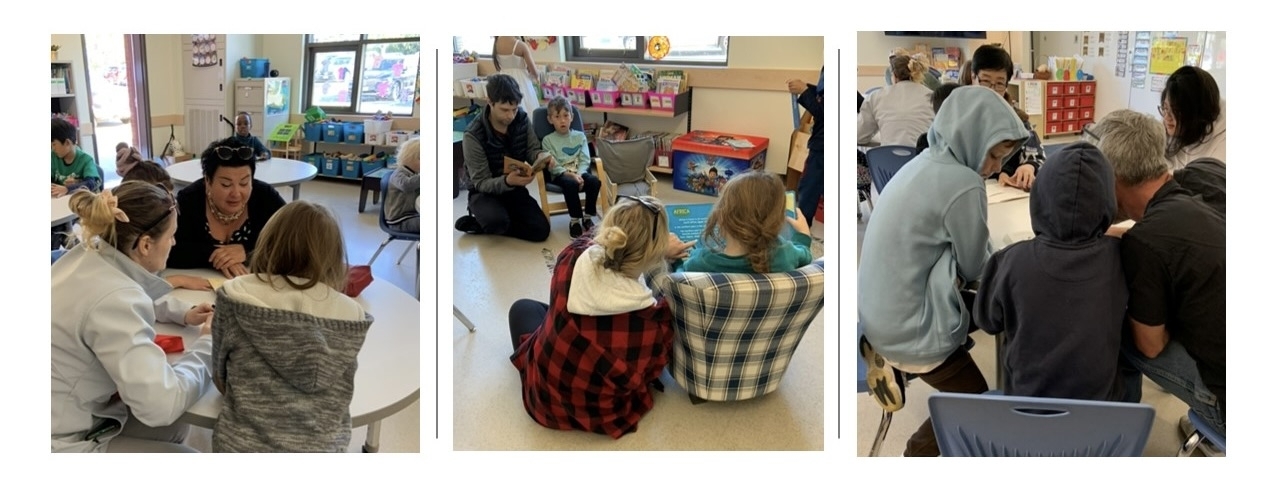
Reading Link Challenge
Students in grades 4 and 5 have been excited to be a part of the Reading Link Challenge. This is a fun way to engage students outside of class time to build on their reading skills and to encourage and foster a love of reading.
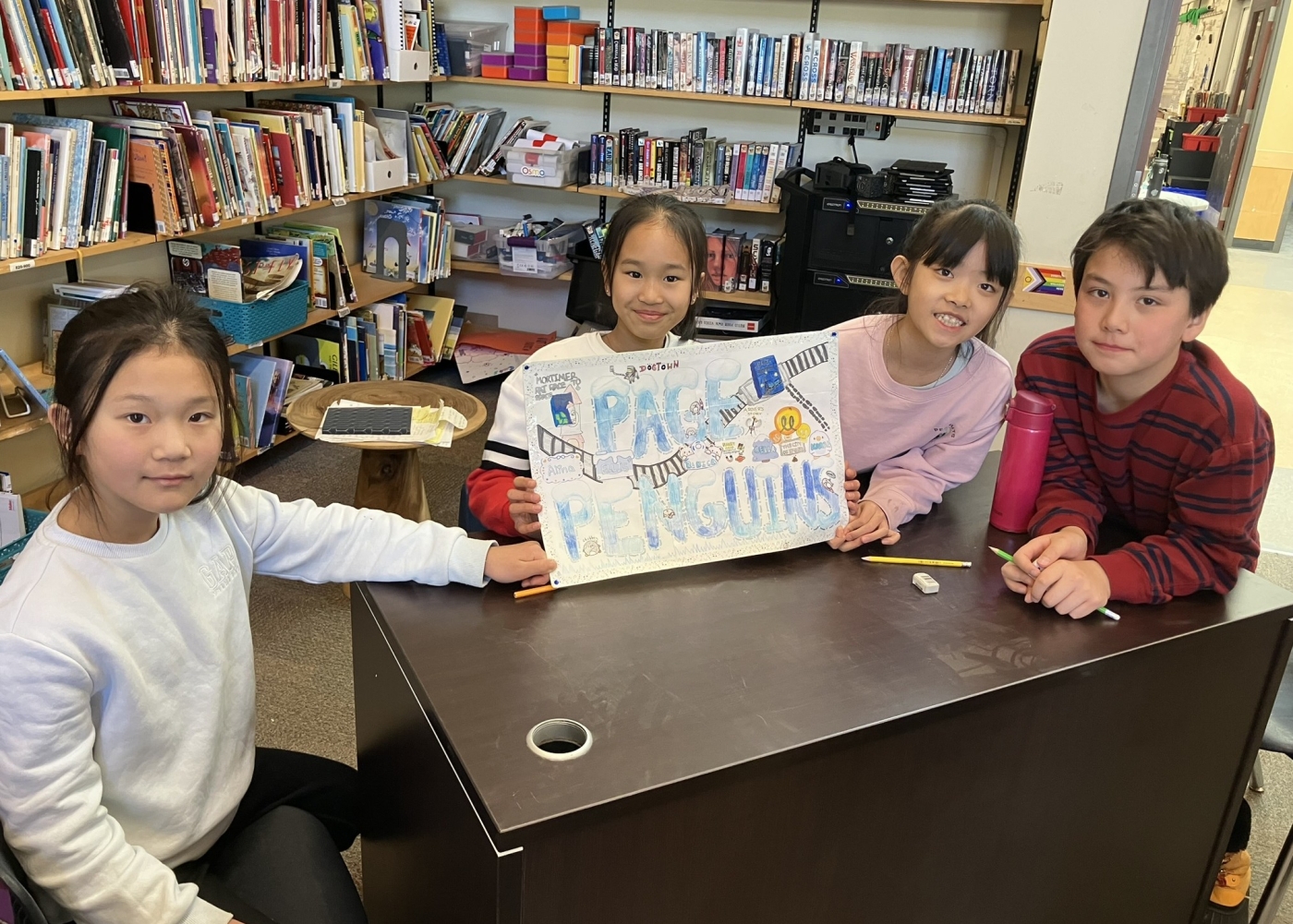
DEAR (Drop Everything and Read)
Twice a year we gather in the gym for Drop Everything and Read.
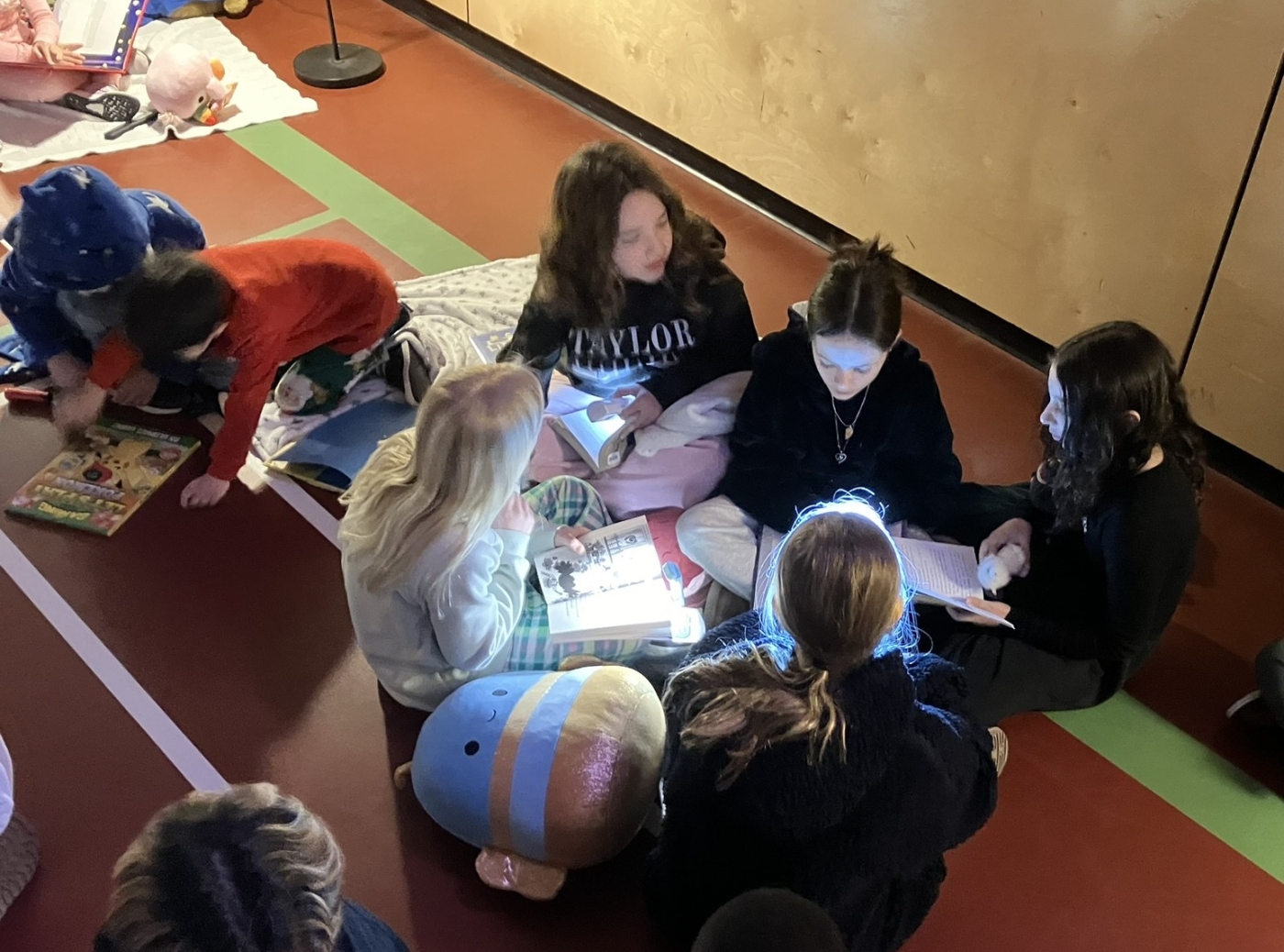
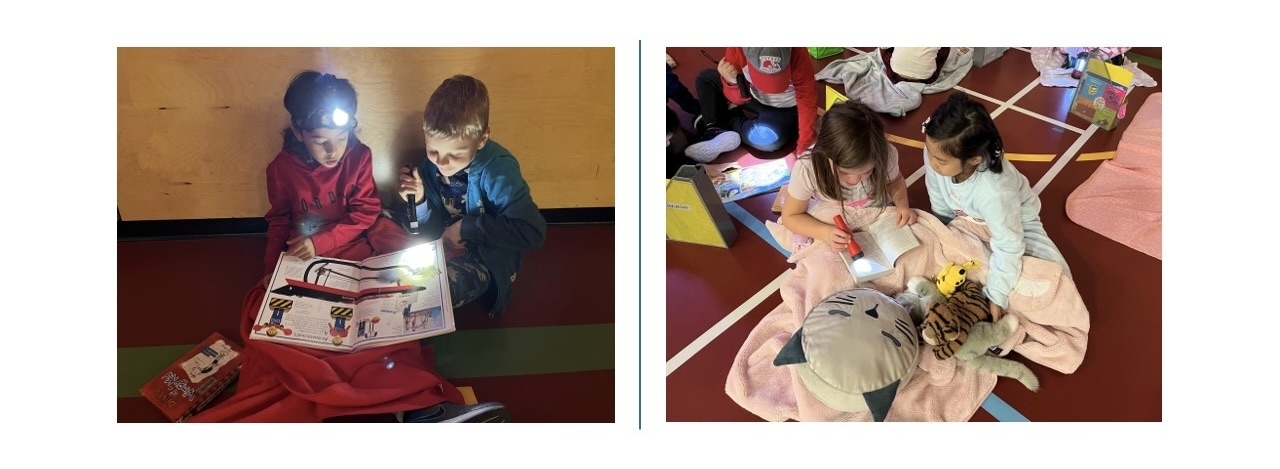
Our learners can plan and create a variety of communication forms for different purposes and audiences
Students in one of our primary Fine Arts classrooms took a deep dive into the Science of Snow, creating the story of its origin in their own words, and a dramatic, musical production to share this learning. They further infused this learning into their dance and art, by choreographing a dance. They used Snow Song as their base story and adapted their lines to express how if we do not take care of global warming, we will not see or experience snow. Doing this meant reading for information, as they followed detailed directions, then writing about their own processes and outcomes. Integration of their academic learning into their fine arts learning deepened their understanding in all subject areas, giving them the language to share this information with others in their own way.
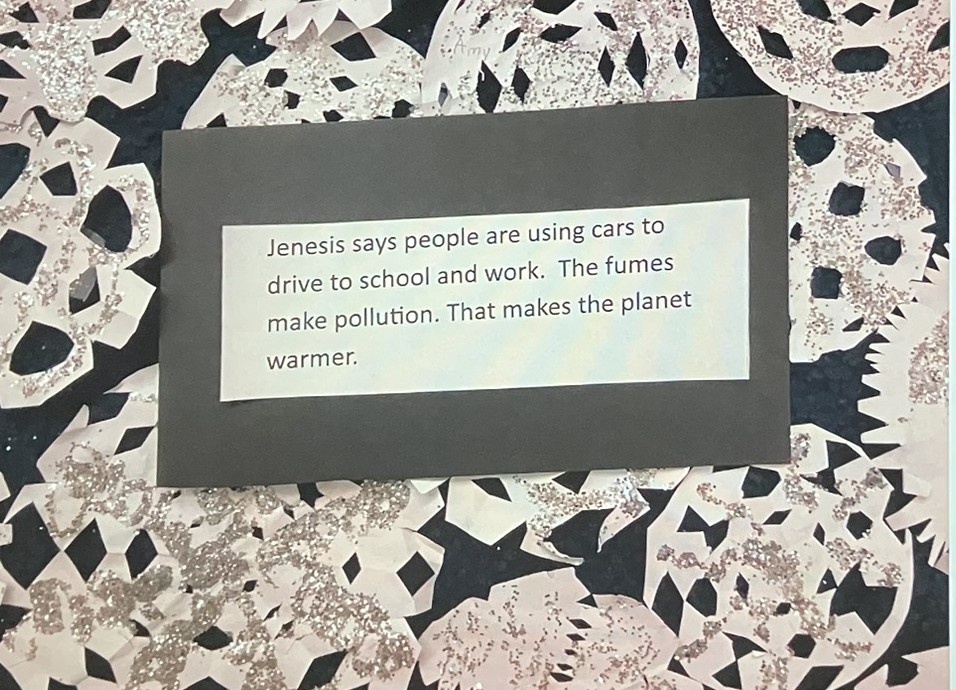
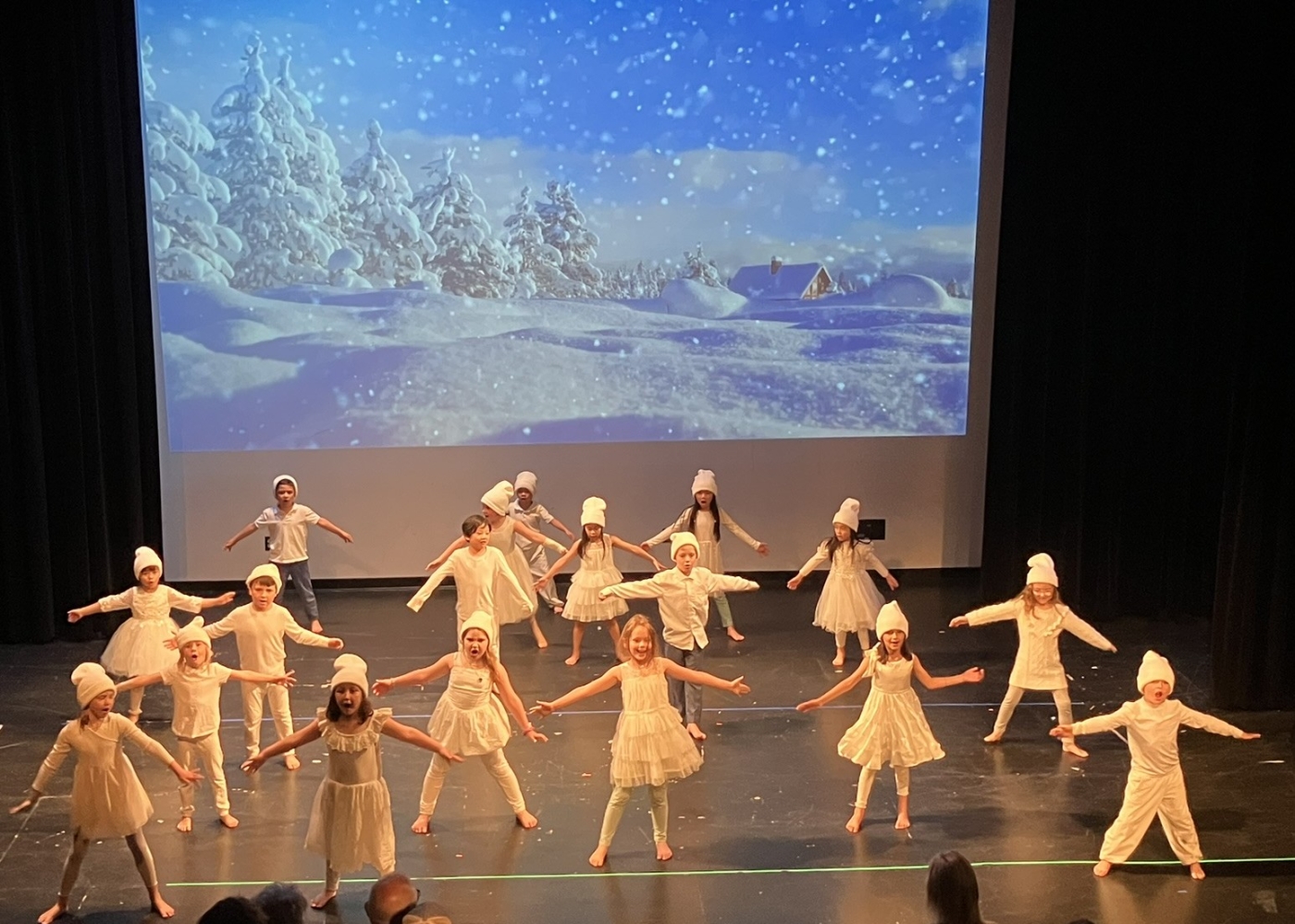
Learning literacy through Indigenous Peoples perspectives:
This year, our learners have incorporated the First Peoples Principles of Learning in subjects such as Social Studies and French. Our intermediate students presented a Social Studies Fair, where many students embraced the principle: Learning is embedded in memory, history, and story. To connect with our school-wide literacy goals, students researched aspects of Indigenous culture that inspired them and wrote descriptive pieces about their topics and findings. Topics included spear fishing, Indigenous clothing, and expeditions led by Metis people. Our learners were proud to showcase their knowledge to our students, staff and parent community at White Rock during our Social Studies Fair. They then reflected on their learning through a written reflection shared in their own classes.
Our intermediate learners also incorporated Indigenous perspectives in French. Through the principle: Learning is holistic, reflexive, reflective, experiential, and relational, students explored Indigenous sewing techniques. Traditional practices such as sewing, knitting and beadwork are often passed down through generations, emphasizing the importance of elders and the responsibility to preserve cultural knowledge. Our learners eagerly showcased their final presentations through a French fashion show. They wrote about their garments in both French and English and presented their information in French.
At White Rock, we are committed to fostering a deep understanding and appreciation of both literacy and Indigenous education. By integrating the First Peoples Principles of Learning across various subjects, we want our learners to develop. Strong literacy skills but also gain a respect for Indigenous cultures and reconciliation. Our holistic approach to education encourages students to connect their learning to real-world contexts, fostering a sense of community and cultural awareness. We are proud of our learners’ growth and achievements.
Social Studies Fair
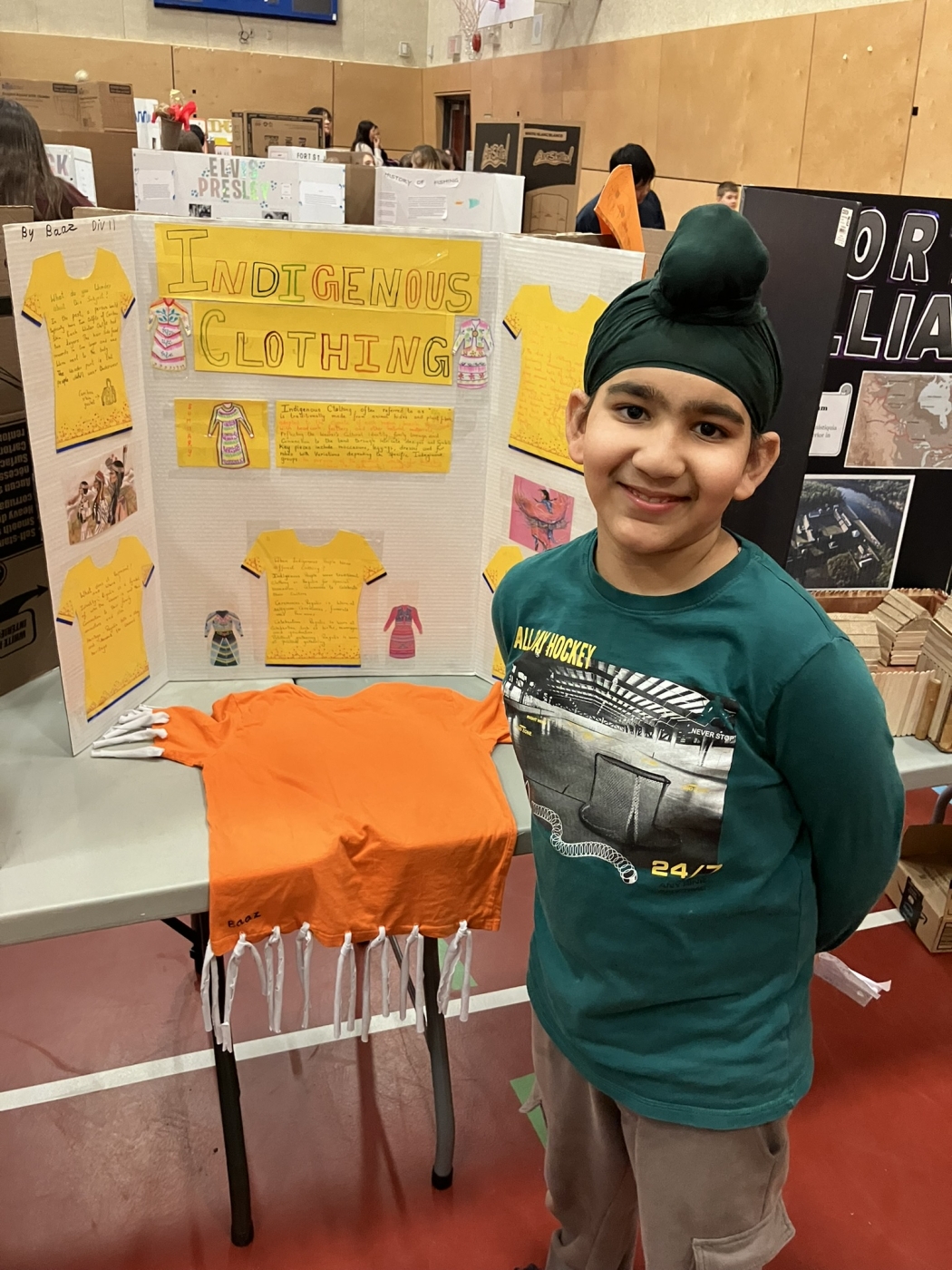
"For my Social Studies Fair project, I researched the topic of Indigenous clothing. I learned that their clothing has a lot of colours and shapes. They made their clothing by hand and not by machine. In Indigenous cultures, they use animal’s skins as fabric because it is warm and helps them survive the elements in harsh climates. It is important to learn about Indigenous people and their practices because they were here first before Europeans. This is the history of Canada, which is about Indigenous people."
French Indigenous Project
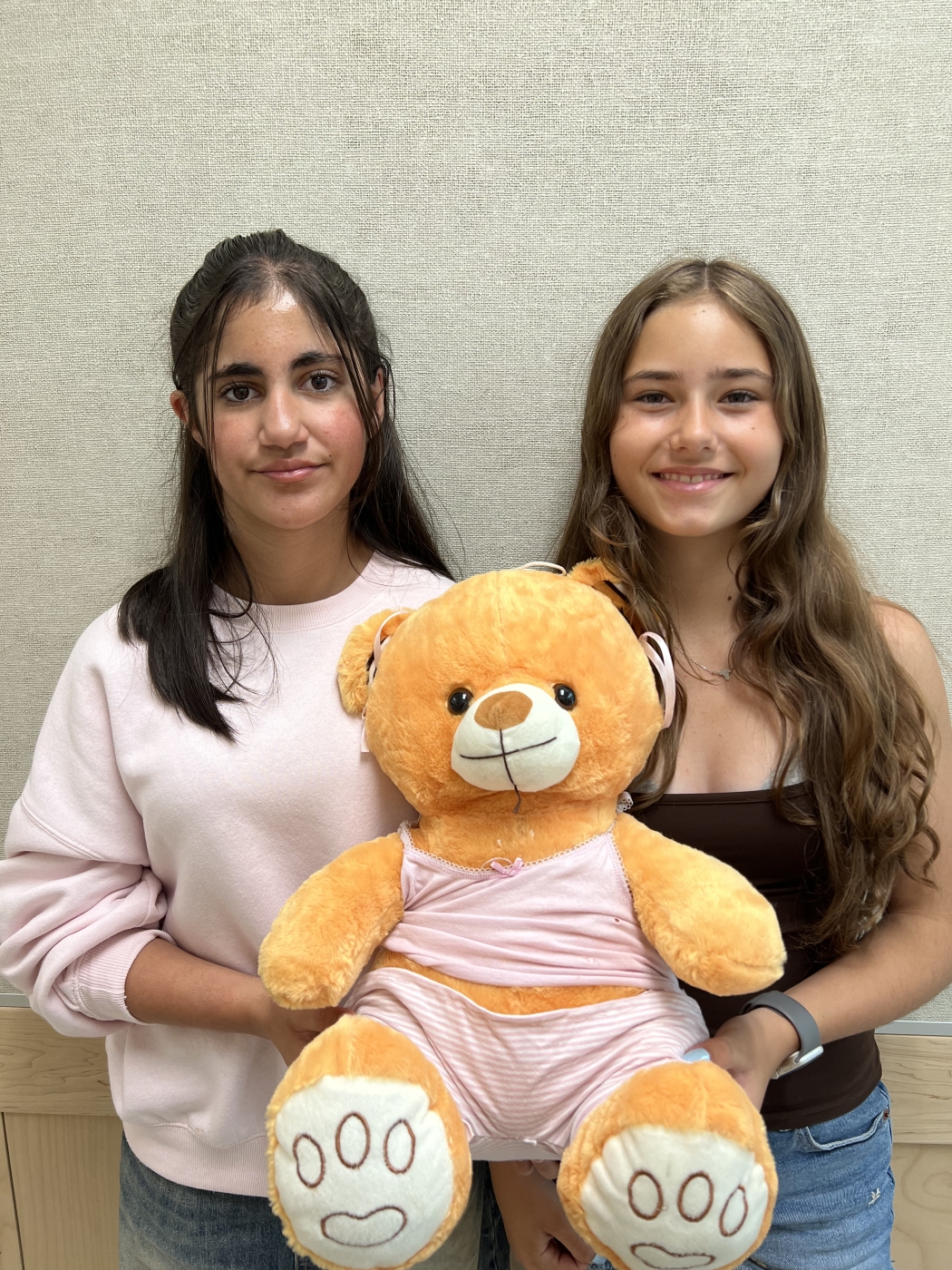
"For our French project, we were asked to make clothes for our teddy bears and have a fashion show, explaining the clothes and colours in French. We learned how to arrange the French vocabulary to describe what clothing you would wear in a particular season. This project incorporates the First Peoples Principles of Learning that Learning is holistic, reflexive, reflective, experiential and relational. We also learned about Indigenous cultures through sewing and braiding. We reused materials, shared resources and practiced sustainability. We are learning about art and history when creating patterns for our garments such as braids, mosaics and different cultural patterns in general. We need to embrace other cultures and educate ourselves and others in different practices, especially in today’s world since we have such a diverse community. This has been a fun project because we were able to be as creative as we wanted. Ms. Song gave us freedom to design without restrictions. The two of us especially enjoyed sharing ideas and helping each other. We felt like a big community because multiple classes were combined to work on this project together, from the Grade 5s to 6s and 7s. Even though this was a French project, there are valuable Indigenous teachings that we incorporated and learned about!"
OUR FOCUS
Literacy skills are the foundation upon which children not only learn the lifelong skills of reading and writing, but also, life skills that enable them to make sense of their world, build essential critical thinking skills, and effectively communicate with others. Throughout the school day, our learners are engaged in many different rich literacy activities in all subject areas, which reinforce the importance of learning to read. In some classrooms, students could be exploring non-fiction picture books to learn about a topic, engaging in a student-led literature circle discussion about a text or expressing the words of poetry, songs, and stories through drama and movement, showing that there are many ways to develop literacy skills. Integration of literacy across disciplines not only enriches the understanding but also reinforces the importance of developing reading abilities.
This year we have monitored the literacy journey in a cohort of early learners in two Kindergarten classrooms. This cohort reflects a diverse range of students that are representative of our school population. These learners have been building pre-reading skills, which are basic building blocks for learning to read.
Phonemic awareness is a part of phonological awareness that involves being able to hear and recognize sounds in words. This is a critical component of early reading success and can have a profound impact on a child’s literacy development. The building of phonemic awareness skills in a child’s early years is directly related to reading fluency and a student’s ability to decode text, as well as the skill of understanding and making sense of the words on the page.
Skills involved in phonemic awareness include segmenting, blending, and syllabication. The work with our first cohort of students has focused on developing these skills through specific phonics instruction, group activities and engaging, play-based activities, which all allow for repetition and review and which benefit our more vulnerable learners.
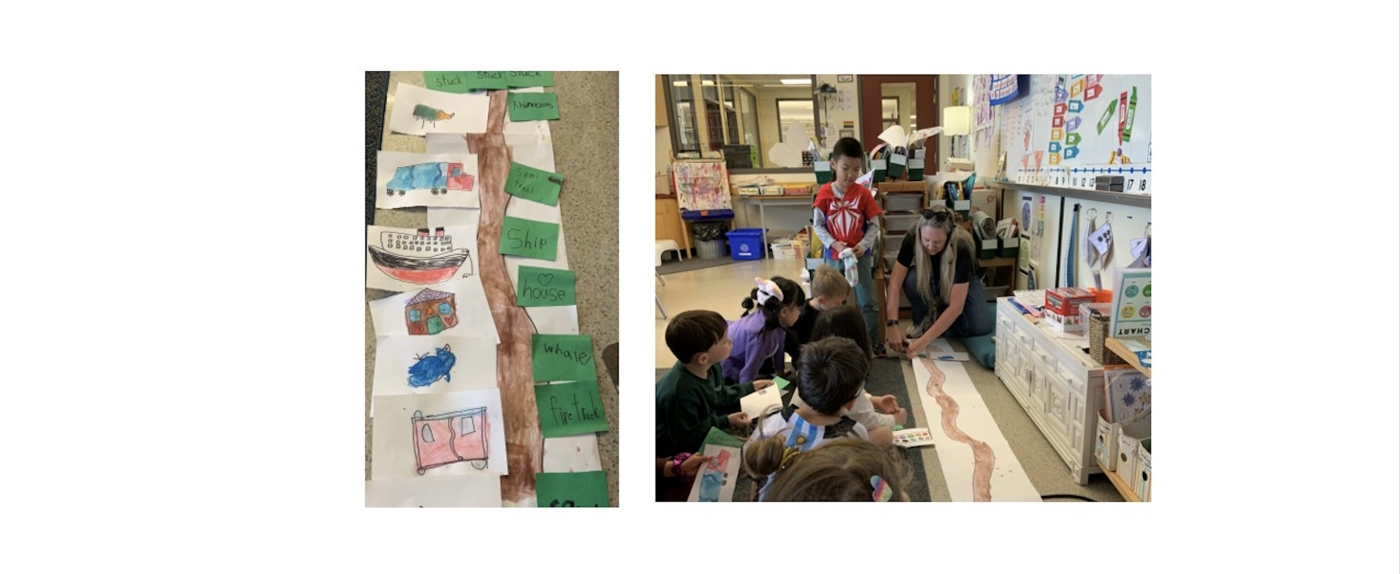
In January our Kindergarten teachers administered the ELPATS (Early Literacy Phonemic Awareness Tool), a district-based oral assessment of phonemic awareness, which helps teachers monitor students’ acquisition. The information gathered through this assessment provided opportunity to guide instruction based on the needs. Then in May, the teachers completed the ELPATS again to measure the students' progress.
Phonemic awareness is a part of phonological awareness that involves being able to hear and recognize sounds in words. This is a critical component of early reading success and can have a profound impact on a child’s literacy development. The building of phonemic awareness skills in a child’s early years is directly related to reading fluency and a student’s ability to decode text, as well as the skill of understanding and making sense of the words on the page.
Skills involved in phonemic awareness include segmenting, blending, and syllabication. The work with our first cohort of students has focused on developing these skills through specific phonics instruction, group activities and engaging, play-based activities, which all allow for repetition and review and which benefit our more vulnerable learners.
Some of the learners have achieved a mastery level of reading skills at the end of kindergarten. Some of our learners take longer to reach mastery level. We will collect information for this and future groups to see if a pattern emerges. This will help us prepare early intervention strategies and targeted support for our learners to close any gaps that may be seen.
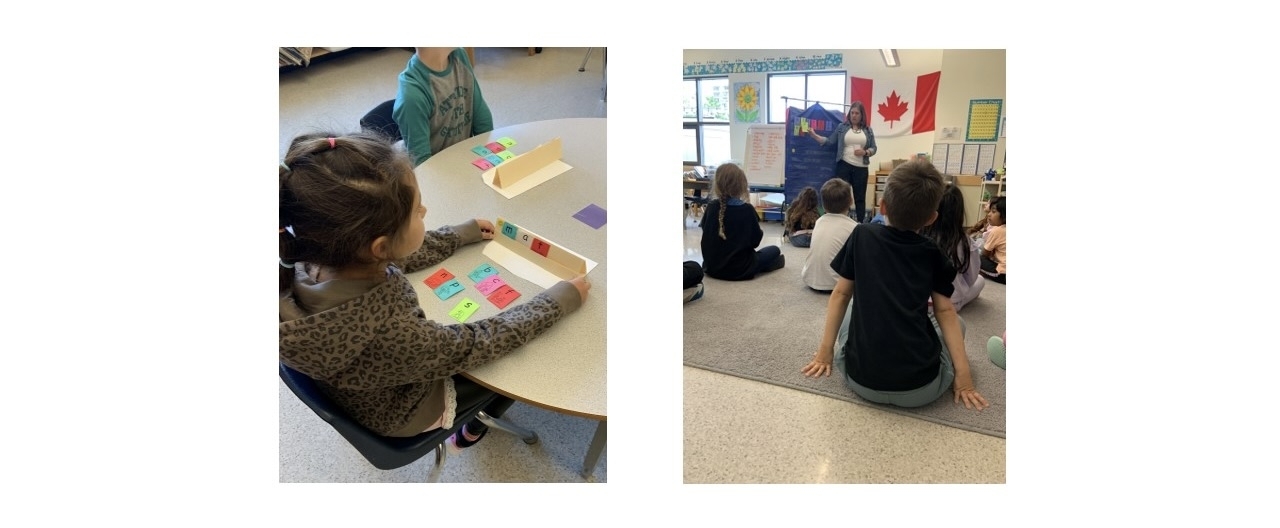
OUR NEXT STEPS
Evidence of our students' learning demonstrates that our literacy focus is having a positive impact on our early learners. This data compares the data collected from the May 2025 ELPATS (Early Literacy Phonemic Awareness Tool) to the data collected in January.
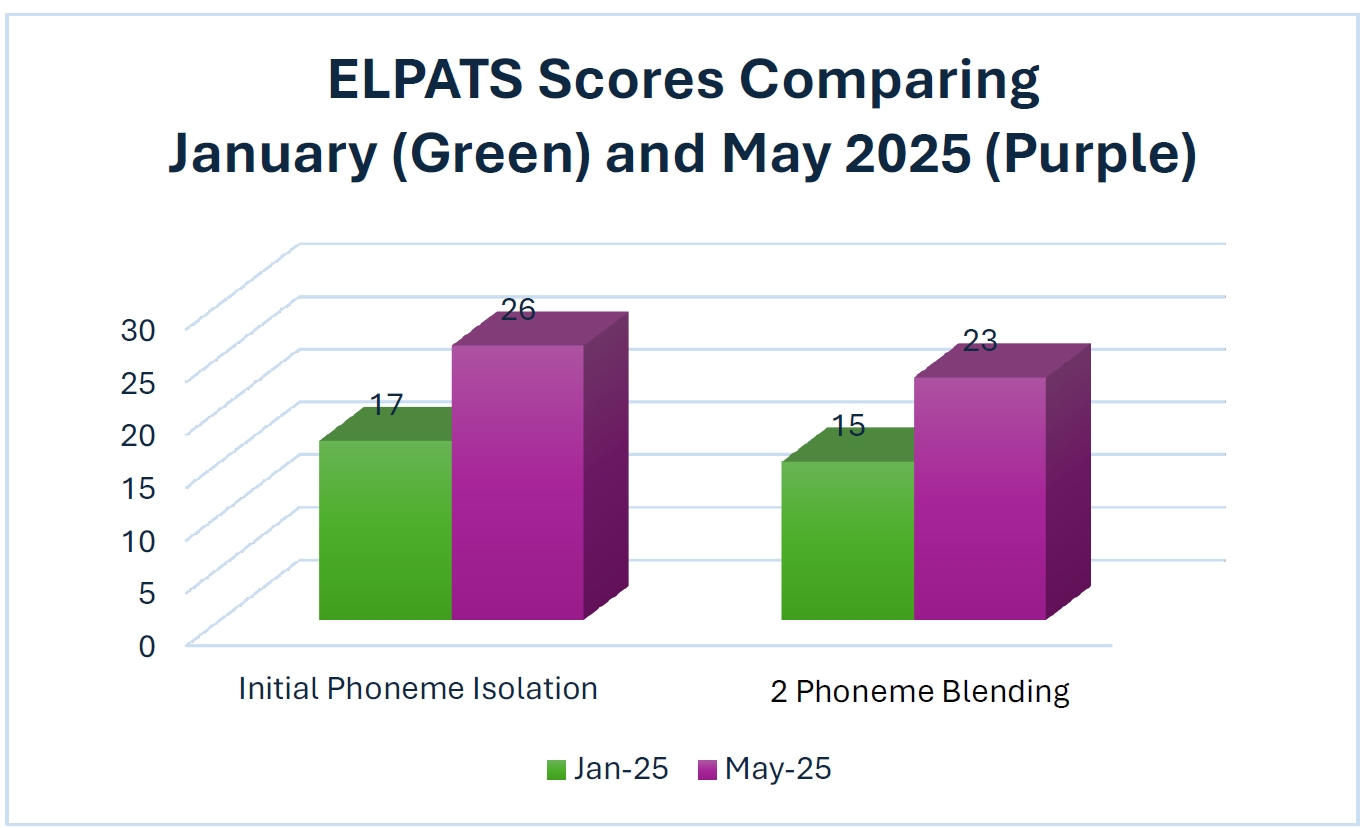
These tables compare the May 2025 ELPAT data (from one of those kindergarten classrooms) with May 2024. We attribute part of this growth to a shift in practise resulting in a change of routines in that classroom (including the use of the UFLI phonics resource and participation in the Responding to Readers program).
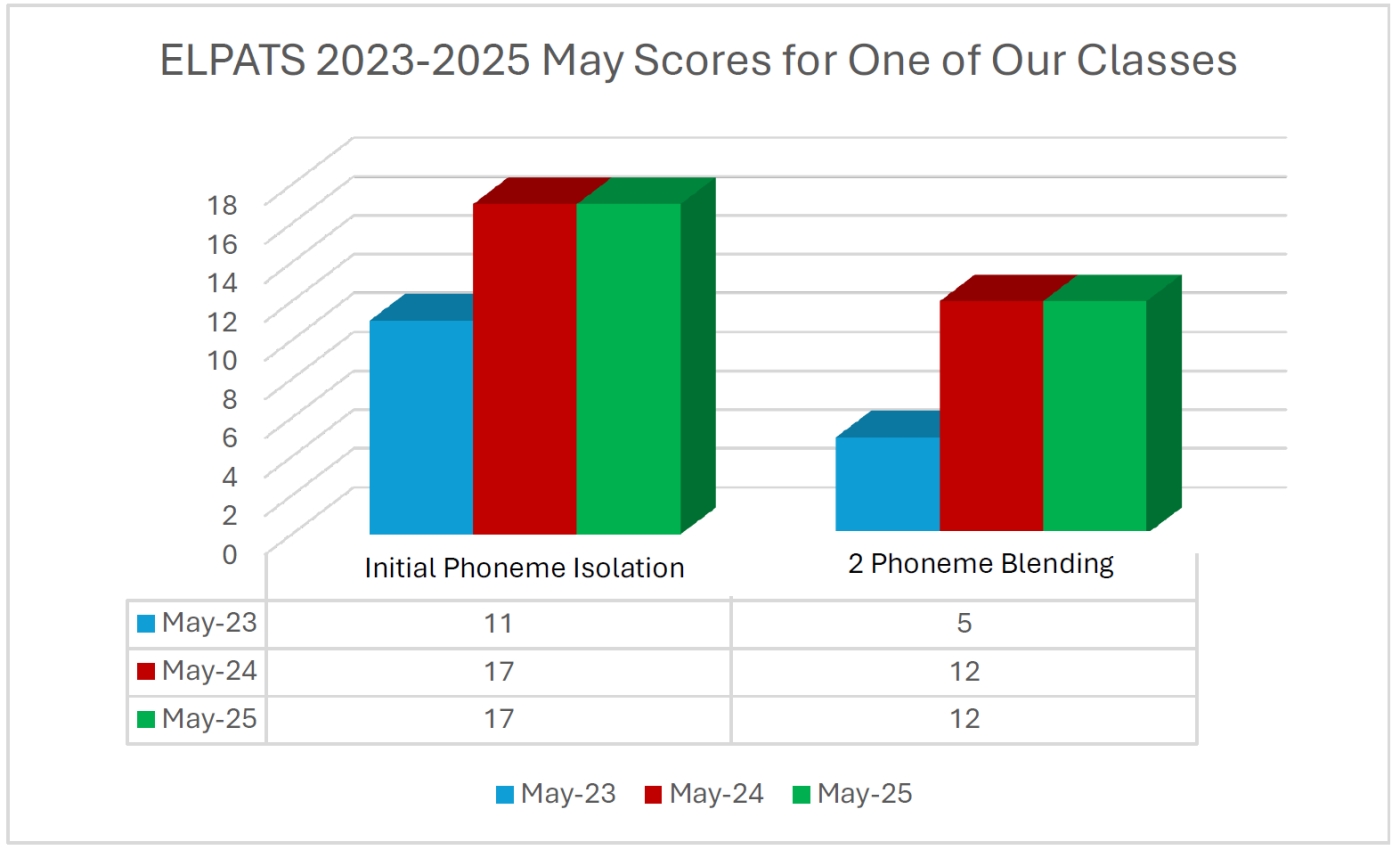
Moving Forward Based on evidence of students' progress in relation to our learning goals, our next steps will include:
• Continuing to support the science of reading and actively using strategies to build phonemic awareness in primary classrooms
• Continue to employ strategies learned in the District Responding to Readers project in 2024-2025
• Use tools such as UFLI for reading and literacy.
• Providing opportunities for families to learn about the importance of reading at home
• Exploring opportunities to build capacity in teachers (for example, through Lunch & Learns with our District Helping Teachers)
